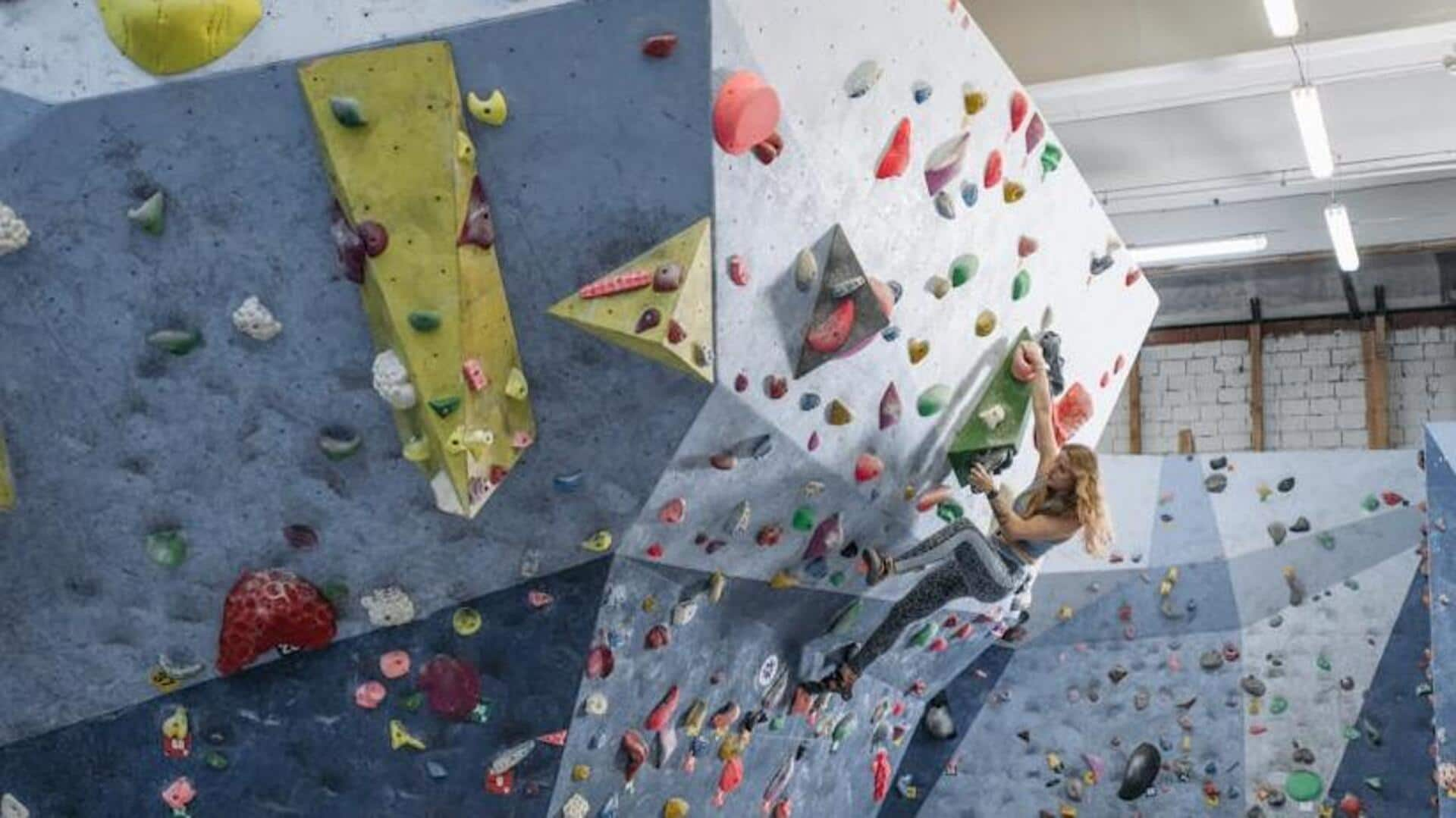
Establishing a daily habit of indoor rock climbing
What's the story
Indoor rock climbing has become a favorite activity for those seeking a physical workout with a mental twist. It's a fun way to develop strength, endurance, and resilience, while experiencing the excitement of conquering challenges. This blog post delves into how beginners can make indoor rock climbing a part of their everyday life to improve both physical and mental health.
First steps
Starting small and steady
For beginners, the key to success in indoor rock climbing is setting small, achievable goals. 1. Focus on getting comfortable with the equipment and basic techniques. 2. Dedicate your first few sessions to learning under the guidance of experienced instructors. Understand how to use harnesses, ropes, and carabiners correctly. 3. This foundational knowledge is crucial for ensuring safety and building confidence.
Strength training
Building physical strength
Indoor rock climbing requires strong physical strength, especially in the arms, legs, and core. To condition your body for this sport, add some exercises to your daily routine. Doing pull-ups, planks, and leg squats can greatly benefit your climbing performance by increasing muscle endurance and flexibility. Try to do strength training at least three days a week to see a significant improvement in your climbing skills.
Mind matters
Enhancing mental resilience
Rock climbing isn't solely a test of physical strength; it's a mental game too. Climbers frequently encounter obstacles that require quick thinking, problem-solving, and the ability to push past fear or frustration. Incorporating mindfulness techniques can help cultivate focus and patience. Try deep breathing or visualization exercises before each climb to calm nerves and hone concentration.
Goal setting
Setting achievable goals
Improvement in indoor rock climbing is achieved by setting manageable goals and consistently nudging your comfort zone. For beginners, focus on attainable wins like climbing a bit higher each time you practice or learning a new technique within a few weeks. Celebrate your progress to stay motivated and build a routine of regular practice. And, crucially, as you get better, raise the bar for yourself. Keep yourself challenged, always!
Regular practice
Consistency is key
The key to establishing a new habit is consistency. For indoor rock climbing, this means setting a fixed schedule each week at times that work best for you. Whether it's early mornings before work or evenings after classes, make sure you stick to a consistent practice schedule. This way, you're more likely to incorporate it into your routine.